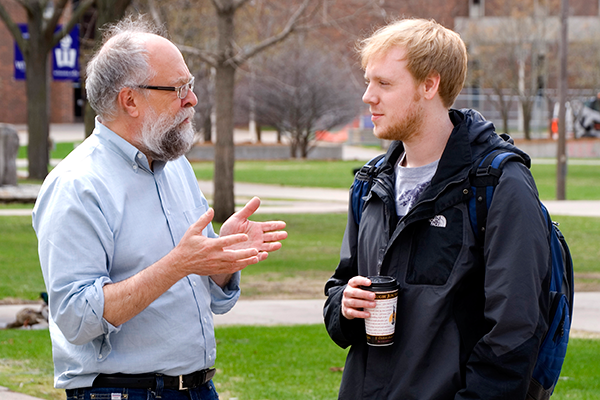Civil Rights travel-study immerses student in history, connects him with his professor
When Luke Stahlmann ’15 took his first history course with Professor John Campbell, he didn’t get the ‘A’ he wanted, but felt he “got great results that connected me with learning and teaching history.”
The secondary social studies education major expects to develop an even closer relationship with history when he joins Campbell and 17 fellow students this summer on the Winona State travel-study program “Tracking the Civil Rights Movement, 1955-2014.”
The two-week travel-study, led by Campbell and colleague Professor Tomas Tolvaisas along with Director of Inclusion & Diversity Alex Hines, will take students to the deep south to visit sites connected to the Civil Rights Movement, meet and interview Movement veterans and current activists, participate in events and workshops, and immerse themselves in Southern cultures. Campbell says it’s a ripe time for the trip because the 50th anniversary of Mississippi’s Freedom Summer is being celebrated this year.
Stahlmann plans to teach high school history, probably in an urban area. He chose the Civil Rights travel-study because, he explains, Campbell helped him see that understanding past and present Civil Rights issues might help him connect with his future students and their diverse cultural backgrounds.
Secondary social studies education majors take a substantial load of history courses. Stahlmann has prepared for the trip by focusing his papers and projects on key events during the early Civil Rights era, such as one on Emmett Till, an African-American teenager who was murdered in 1955 after being accused of flirting with a white woman.
The opportunity to explore and analyze history at the source excites Stahlmann. “It’s important for a teacher to experience the things he’s teaching, to bring something unique to his students,” says Stahlmann.
Campbell sees unexpected payoffs from the Civil Rights travel-study: growth from a shared experience with fellow students, and exposure to different learning and pedagogical styles that will inform Stahlmann’s teaching when he steps into his own classroom.
He says Stahlmann is “a good example of a student who has been intentional about learning. He’ll get a lot out of the Civil Rights travel-study and be well-positioned for his teaching career.”
And although Stahlmann thought the freshman history course he took from Campbell was “incredibly demanding,” he credits the way Campbell “got me engaged in history. As a teacher, he’s a great role model.”


